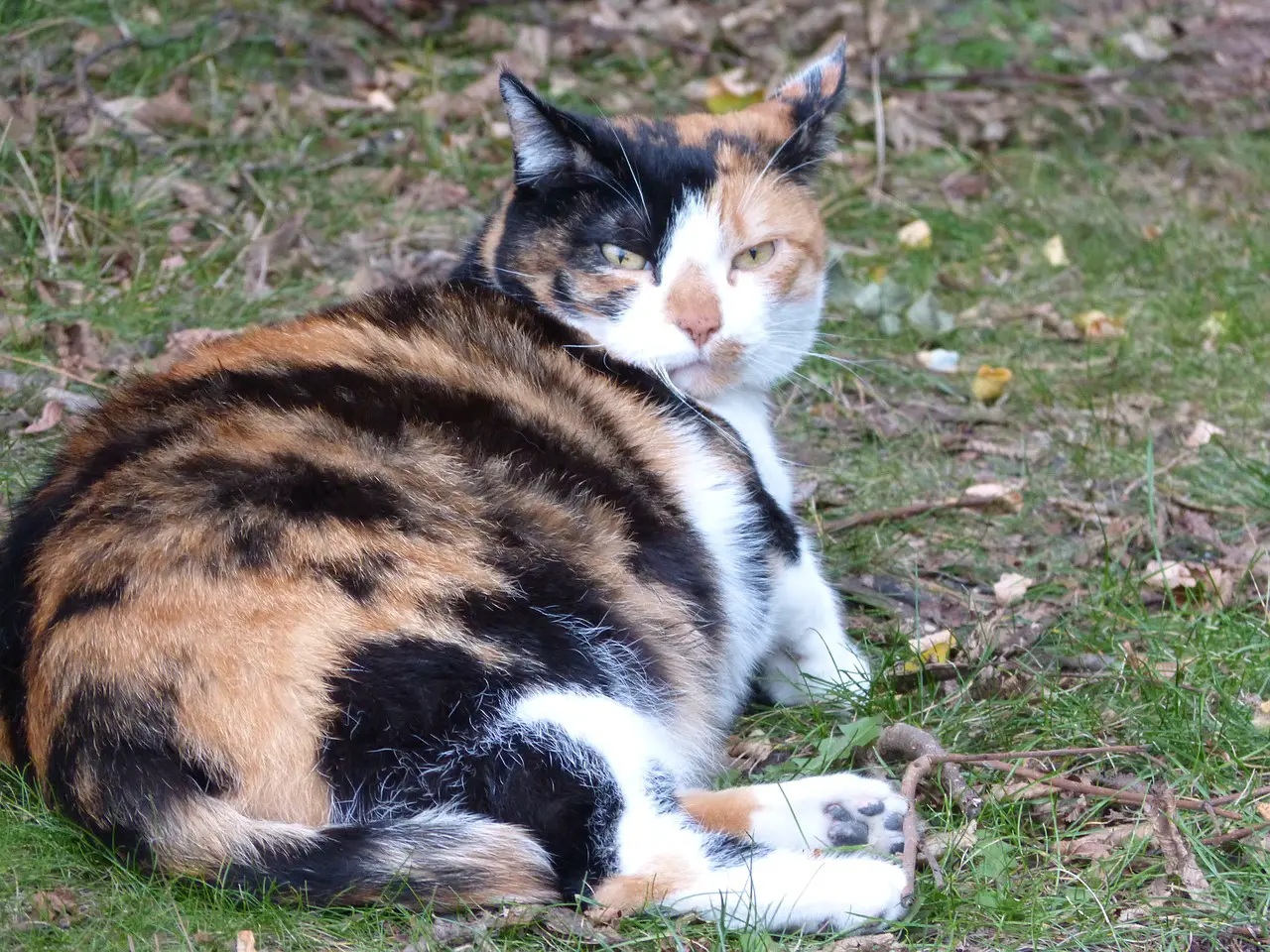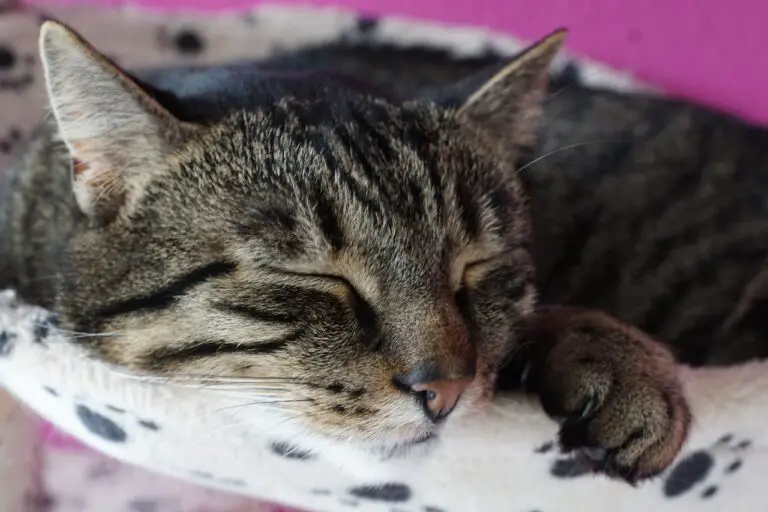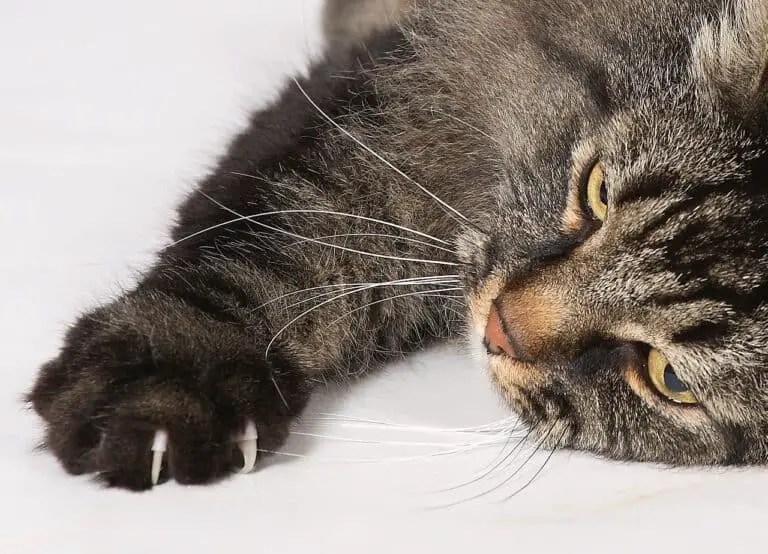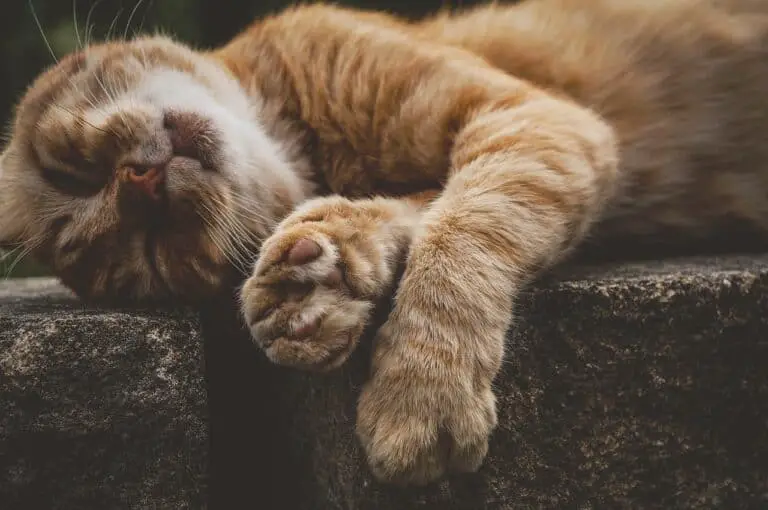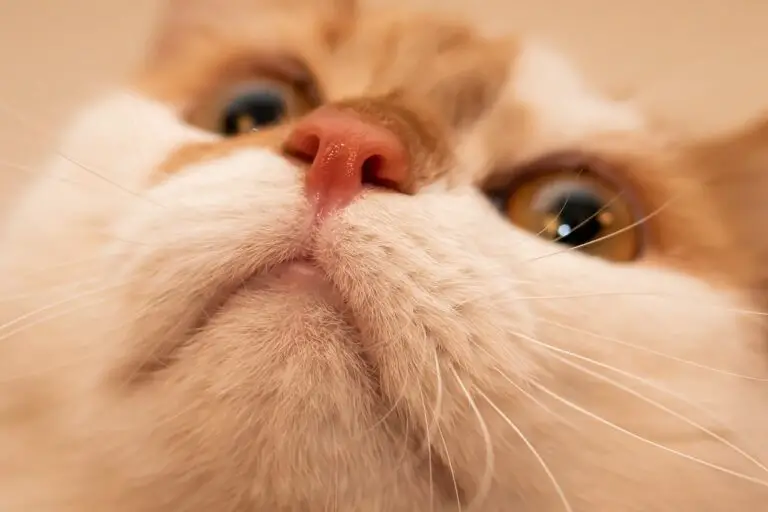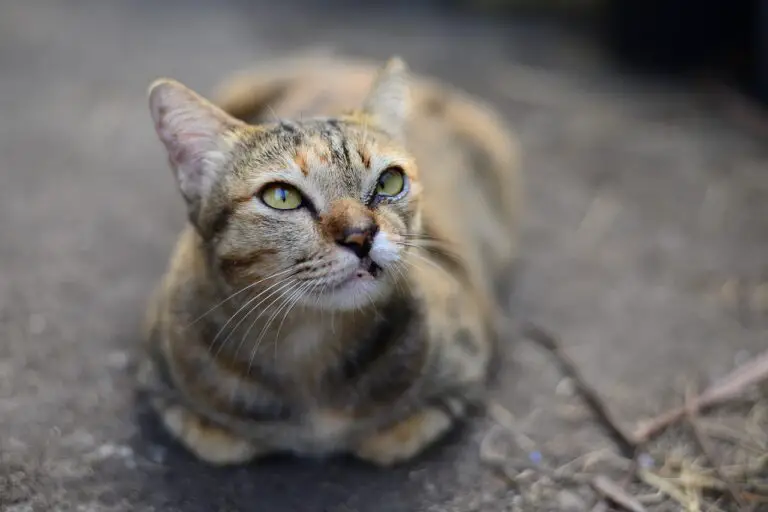PREGNANT CAT BEHAVIOR – FULL GUIDE
Are you wondering what a typical pregnant cat behavior is? Of course, we know that pregnant women can be touchy and moody, but what happens to a lady cat through her pregnancy? Well, cats are moody too and can behave differently.
Pregnant cats behave differently during pregnancy. They can be moody and become more affectionate than usual in certain moments, while others can be more aggressive. You can have your pregnant cat come around often to get attention or disappear in certain stages of her pregnancy.
Pregnant cats require cats owners to be more attentive to their needs. So let’s see how cats behave during pregnancy and what we can do to make them feel better.
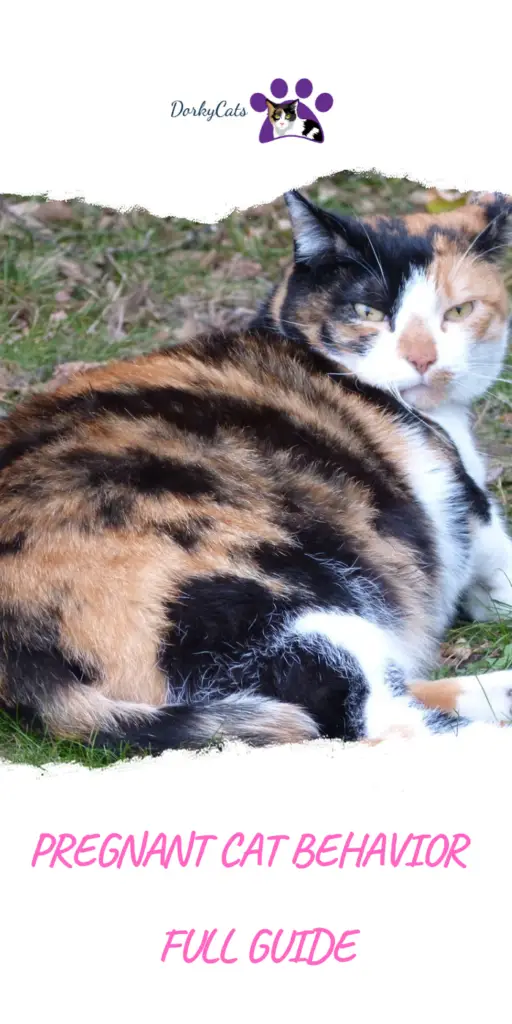
PREGNANT CAT BEHAVIOR CHANGES
Pregnant cats change considerably throughout the entire pregnancy period. You can notice physical changes but also behavior changes. Your cat feels differently because of what is happening to her body and can become protective of her soon-to-be kittens.
In general, “lady cats” are always protective of newborn kittens and do a lot of putting themselves in the condition to carry out a successful birth. On the other hand, indoor cats that have built a relationship with their owners and are familiar with the environment tend to be more relaxed.
While those who go outside may decide to stay indoors much more, your cat could opt to come to you often for attention and become clingy. So you have to pet them and give them more love than usual, including letting them cuddle with you.
Your pregnant cat could be sleeping more or even get aggressive at times or overreact. She also could demand more food from you by meowing more than usual. Here is a summary of things you can expect from your pregnant cat:
- More affection
- Become clingy
- Show aggression at times
- Hiding
- Sleeping more
- Become hungry often
- Be all over you
- Nervous or excited when she is close to give birth
- Trying to build a nest
EARLY SIGNS THAT A CAT IS PREGNANT
Cats also have physical changes when they become pregnant. However, in terms of behavior, even if at the beginning of the pregnancy, you can already spot that she has more appetite, is more affectionate, and stays indoors more than usual.
Physically, even at the very beginning, you can spot signs of pregnancy. For example, she may start vomiting, and you can observe swollen nipples. In addition, your cat may have already gained some weight; you will notice that she is a bit fatter.
Looking at her abdomen, you can also find it distended. Usually, at that point, she is already one month pregnant. In addition, you will notice that your cat is not in heat anymore; the usual behavior repeating every two weeks has ceased to happen. This is the biggest clue.
Your cat showing no signs of heat is the thing that should alert you after the first two weeks. Here is a summary of physical symptoms of early pregnancy:
- Extended belly
- Vomiting
- Swallen nipples
- Gaining weight
- Lack of heat periods
IS A PREGNANT CAT BEHAVIOR AGGRESSIVE?
Pregnant cats are not always aggressive. However, depending on the character, some mother cats can be aggressive occasionally, while others can be very defensive if they think something is putting the babies in danger.
Cats can be one moment lovely and suddenly attack you if they believe there is something wrong, they can be very moody during pregnancy. So avoid changing too many things around the house if you have a pregnant cat.
In my experience, it is better to keep the environment quiet and prevent drastic changes not to scare her. The aggressive behavior can show up mainly toward the pregnancy’s end when she needs to find a secure place to give birth.
If new people or other pets come into the house, she can become nervous, be aggressive by hissing, and sometimes even attacking. But, in general, mother cats are very sensible and require a lot of love and security.
In some cases, the mother cat can also be aggressive because she is in pain. If you recognize there is something wrong, it is always better to check with the vet to make sure she is not developing a health condition.
PREGNANT CAT BEHAVIOR BEFORE BIRTH – WHAT TO EXPECT?
Before birth, pregnant cats can have a considerable change in their behavior. You will spot that the new kittens are about to come. The first thing you will notice is that your cat is disappearing, she has been gone for many hours, and you can’t find her.
A mother cat will try to find hidden places, sneak into cupboards, drawers, and other openings, and find a proper location that she can consider secure enough. She will also try to stay in those parts of the house that are quiet.
A few days before birth, she may become very needy and clingy. Then, you will see that she comes to get reassurance and love. Another thing you can see is a lack of appetite. She will become restless and anxious. Cats can also vocalize by meowing, chirping, howling, and other sounds.
In addition, you will see her licking her bottom a lot and overgrooming. It is possible to help her by providing a secure place for birth, such as a box or enclosures with several blankets. The most important thing is that it is a quiet room and that she feels safe and comfortable.
PREGNANT CAT BEHAVIOR AFTER BIRTH – WILL IT CHANGE?
What happens to cats after they give birth? Will they change their behavior again? Or will it go back to normal? The first thing that can happen is that the mother cat can become even more protective and aggressive toward anyone touching her kittens.
If you are close to your cat, she may let you come close and trust you, but it is not the same with strangers and other pets, especially if you have a male cat in the house. If he starts approaching, it can trigger a bad reaction in the mother cat.
Mother cats may be very protective of their kittens for three to four weeks after birth. After that, she will want to keep them safe under her watch, and she will police anything happening in the immediate environment.
If your cat shows signs of aggression and doesn’t want you or anyone to come close, leave her in peace and give her time to adjust. She will calm down with time, especially when kittens start walking around the house. Just be patient.
FREQUENTLY ASKED QUESTIONS
Is a pregnant cat clingy?
Pregnant cats can become clingy, especially when they are close to delivery. You can expect a cat to require more attention, look for comforting hands and love. Pregnant cats can be anxious and afraid. Pet owners should dedicate more attention to them.
Can you feel kittens in a pregnant cat?
Yes, it is possible to feel kittens in a pregnant cat, but it is not always good to touch her belly. Pregnant cats can be susceptible to belly rubs and touch. Therefore, it is essential to touch the belly lightly, and even when picking up a pregnant cat, one should make sure not to press the stomach.
How do cats prepare for birth?
Soon-to-be mother cats are brilliant and have a great instinct in preparing for birth. So the first thing they do is look for a safe and quiet place. They want to be sure no one can reach the kittens, even if they will find food. Indoor cats, at times, will surprise cats owners in finding the most mysterious places.
Why is a pregnant cat aggressive towards other cats?
Pregnant cats do not like other cats to come near her, especially if she is close to birth and especially when she is delivering her babies. Once the new kittens are born, other cats should stay away from the new mom to avoid testing her nails.

